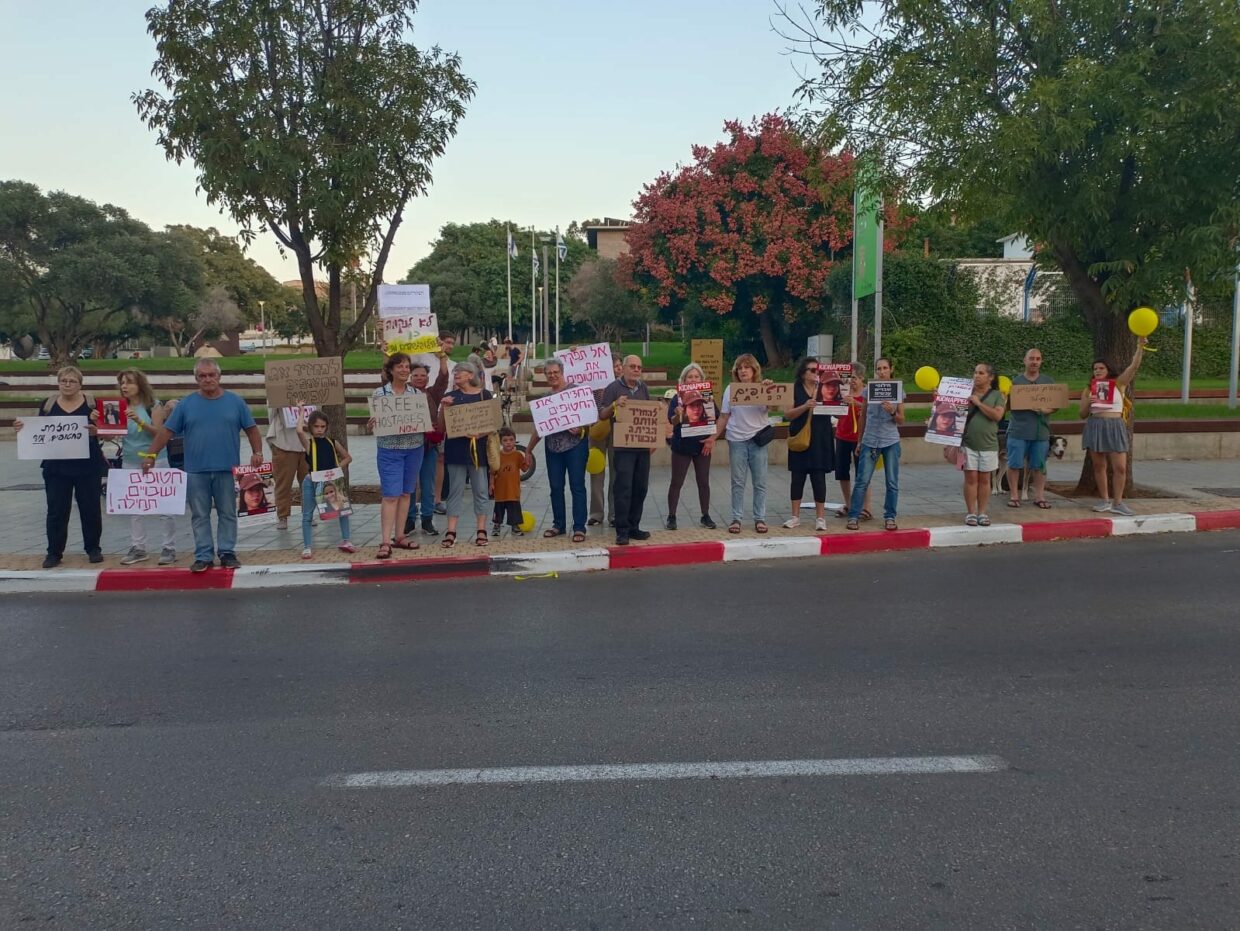
Then Saul said to his courtiers, “Find me a woman who consults ghosts, so that I can go to her and inquire through her.” And his courtiers told him that there was a woman in En-dor who consulted ghosts.
Saul disguised himself; he put on different clothes and set out with two men. They came to the woman by night, and he said, “Please divine for me by a ghost. Bring up for me the one I shall name to you.”
But the woman answered him, “You know what Saul has done, how he has banned [the use of] ghosts and familiar spirits in the land. So why are you laying a trap for me, to get me killed?”
Saul swore to her by the LORD: “As the LORD lives, you won’t get into trouble over this.”
At that, the woman asked, “Whom shall I bring up for you?” He answered, “Bring up Samuel for me.”
Then the woman recognized Samuel, and she shrieked loudly, and said to Saul, “Why have you deceived me? You are Saul!”
The king answered her, “Don’t be afraid. What do you see?” And the woman said to Saul, “I see a divine being coming up from the earth.”
“What does he look like?” he asked her. “It is an old man coming up,” she said, “and he is wrapped in a robe.” Then Saul knew that it was Samuel; and he bowed low in homage with his face to the ground.
Samuel said to Saul, “Why have you disturbed me and brought me up?” And Saul answered, “I am in great trouble. The Philistines are attacking me and God has turned away from me; He no longer answers me, either by prophets or in dreams. So I have called you to tell me what I am to do.”
Samuel said, “Why do you ask me, seeing that the LORD has turned away from you and has become your adversary?
The LORD has done for Himself-e as He foretold through me: The LORD has torn the kingship out of your hands and has given it to your fellow, to David,
because you did not obey the LORD and did not execute His wrath upon the Amalekites. That is why the LORD has done this to you today.
Further, the LORD will deliver the Israelites who are with you into the hands of the Philistines. Tomorrow your sons and you will be with me; and the LORD will also deliver the Israelite forces into the hands of the Philistines.”
At once Saul flung himself prone on the ground, terrified by Samuel’s words. Besides, there was no strength in him, for he had not eaten anything all day and all night.
The woman went up to Saul and, seeing how greatly disturbed he was, she said to him, “Your handmaid listened to you; I took my life in my hands and heeded the request you made of me.
So now you listen to me: Let me set before you a bit of food. Eat, and then you will have the strength to go on your way.”
He refused, saying, “I will not eat.” But when his courtiers as well as the woman urged him, he listened to them; he got up from the ground and sat on the bed.
The woman had a stall-fed calf in the house; she hastily slaughtered it, and took flour and kneaded it, and baked some unleavened cakes.
She set this before Saul and his courtiers, and they ate. Then they rose and left the same night.
I Samuel 28
Many of us remember Donald Rumsfeld’s famous distinction between known unknowns and unknown unknowns. Now that I’ve spent the worst three weeks of my life absorbing people’s espoused online opinions about this catastrophe, I think I have a sense of what’s happening.
Let’s set aside the piles upon piles of opinionated idiots from faraway lands. I’ve said all I have to say to them and all I can add, following Caitriona Reed’s inspiring ritual, is that I’m grateful for the gift that colleagues are offering me by showing me who they truly are, sparing me the need to ever again breathe the same air with a not-insignificant number of people in my professional circles.
Among Israelis, I’m seeing two tropes: the bomb-them-all folks and the let’s-make-peace folks. Both are persuaded that they know what they know. In both cases, people have fallen prey to the Rumsfeld fallacy. They don’t realize–or don’t want to realize–how little they know.
Bomb-them-all Israelis assume that they know a ground offense will successfully finish off Hamas, assume that they know what impact this will have on the hostages, assume that there’s a victory to be eked here (there isn’t), assume that they can assess (morally + strategically) and calibrate the horrid humanitarian price this will exact on Gazans and Israelis alike, assume that the numbers of casualties reported on the other side are exaggerated. They don’t know any of these things.
Make-a-peace-agreement Israelis assume that they know how much support Hamas does and does not have among Gazans, assume that there’s a kernel of good government there that can be cultivated, assume that they can get back the hostages without a ground war, assume that ground offense and hostage recapturing are a zero sum game, assume that the numbers of casualties on the other side are accurate. They don’t know any of these things.
I think people are holding on to these unchecked assumptions for dear life because they feel helpless in the following triple bind:
(1) They cannot accept the fact that this is not about “preventing a catastrophe”, either through a ground offense or through diplomatic channels. THE CATASTROPHE HAS ALREADY HAPPENED AND IT IS IRREVERSIBLE. And we do not have pertinent knowledge that move A on the chessboard will lead to more horror while not-A will not. For any value of A.
(2) We are driven to despair and madness because of how little control we have over the horrific hostage situation. We all want them back and WE DON’T KNOW HOW TO DO IT.
(3) Finally, people are driven to come up with plans because they have zero trust that Netanyahu has one. They’ve seen their poor excuse for a government completely bankrupt and inept. Whatever is happening, it’s being done by volunteers and by competent people from civil society (many of them from the protest movement) who have stepped up.
All I’m seeing are people grieving, shocked, mourning, terrified, angry, shaken to the core, who are projecting their confirmation biases on an untenable situation. Do I understand why they do it? Of course. We are completely groundless. We’re broken into a million pieces. We want to lead with our hearts, we abhor the loss of innocent life, we are terrified about the hostages (see the above pictured protest on their behalf). So we treat our own typed words, our own convictions, our own confirmation biases, as if they were our personal sorceress, pulling an answer from the cauldron. We cling to it as we tremble, we talk to drown it, lest the ghost of Samuel apparate, telling us that we’re already goners. It’s so hard to accept that we have no idea what is going on or what we’re doing, what the objectives are, what will lead to the least amount of unfathomable pain. But we must accept it. Because, to our great tragedy and horror, the only thing that is true is that we. just. don’t. know.




No comment yet, add your voice below!